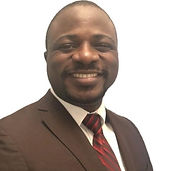
Proteus Zolia
Hi There! I'm So Glad You're Here.
I created this site to introduce myself and my work to the world, and at the same time empowering individuals like you. Through the book summaries, I aim to unlock the transformative power of knowledge, making it accessible and actionable for everyone. Whether you're seeking growth, inspiration, or practical strategies for a better life.
I'm a graduate from Andrews University in Clinical Laboratory Science and Johns Hopkins University in Biomedical Engineering. These studies have made me really passionate about technology and how it can help reduce people's suffering.
Technology has always been important in making our lives better. We've seen big changes in the past, and now we're starting another big change with things like nanotechnology, genomics, and artificial intelligence.
I believe our biggest task now is to learn new skills that will be important in the future. This is why I want to help create, improve, and work on technologies that will be really important for our world.
Scholastic Works
Andrews University
Undergraduate Project
Clinical Microbiology: Project title: “Antimicrobial Activity of Synthetic Di-Esters-Containing Di-Boronic Acids.” Findings: Novel compounds inhibited the growth of three multi-drug resistant bacteria. I was one of three group members that collaborated with the chemistry department at Andrews University to conduct this research.
Johns Hopkins University
Graduate Project
Graduate Advanced Project, Cellular Engineering Lab: I worked with two other incredibly talented students to design a hypothesis driven CRISPR/Cas9 experiment. We used plasmids for the purpose of improving CHO cells for biomanufacturing. During the experiment, we created a gRNA to knockout a gene target. The project was completed and presented in the form of a seminar at Johns Hopkins University.
Johns Hopkins University
Graduate Project
Graduate Project (NIH R21 Grant Writing, Johns Hopkins): This project was intended to solve an unmet need associated with the tendency of HIV virus to mutate, thereby eluding vaccine development efforts. In a group of four students, our idea was to incorporate highly conserved envelope proteins (gp41 and gp120) as immunogens into the vaccine design. We intended to use self-amplifying mRNA encoding the immunogen and encapsulate it in lipid nanoparticles. We developed a computational modeling of the vaccine to assess its efficacy using MATLAB.
Johns Hopkins University
Graduate Project
Graduate Project (NIH R21 Grant Writing, Johns Hopkins): This project aimed to solve the problem of hypoglycemia resulting from subcutaneous injection of insulin. My team of four students aimed to solve this problem by finding an alternative delivery route: administering insulin peptide through the gastrointestinal tract to overcome biochemical barriers like chymotrypsin, a proteolytic enzyme. Our method involved both glycoengineering and nanotechnology to engineer and formulate insulin peptides as follows: firstly, shield the vulnerable portion of insulin using mannose sugars, then encapsulate using chitosan which are biocompatible nanoparticles for optimal delivery.
Johns Hopkins University
Graduate Project
Graduate Project (NIH R01 Grant Writing, Johns Hopkins): The major target of this grant proposal was to solve the problem of blood shortages and compatibility issues in transfusion medicine. I worked alone to develop an innovative solution to this problem. The idea was to engineer functional adult erythrocytes in-vitro for culture and differentiation as a proof-of-principle. The method was to firstly create a novel cell line by immortalizing erythroid progenitor cells using HPV16-E6/E7 expression system. Then enhance compatibility of the immortalized cells by knocking out immunogenic cell-surface antigens for safe transfusion. Note: all my NIH grant writing projects were supervised by Dr Kevin Yarema and Dr. Jordan Green, professors of biomedical engineering at Johns Hopkins University.
Awards & Recognitions
AI/ML in Health Training
NIH, NCATS, AIM AHEAD, September 2024
I was awarded a $10,000 NIH-sponsored traineeship for an intensive 8-month program in advanced data analysis. This program, conducted by the AIM-AHEAD in collaboration with NCATS, aims to equip early-career researchers with the skills to address biases and disparities in large datasets within the field of artificial intelligence in medicine. The initiative aligns with President Biden's Executive Order, focusing on establishing regulatory standards for responsible AI development in healthcare. I am especially excited about gaining insights into Good Algorithmic Practice during this training.
Full Tuition Scholarship
Department of Biomedical Engineering, Johns Hopkins
May 2022
I was awarded a full tuition scholarship for $58,720 to cover the cost of my tuition and associated fees. The scholarship was awarded by the Department of Biomedical Engineering at the Whiting School of Engineering, Johns Hopkins University.
'Key to Our Success' Recognition
Cerner EHR Project for Community Health Systems (CHS). 2018-1019
I joined the Cerner EHR project during a very critical phase at Dukes Memorial Hospital, one of CHS's network hospitals. My role was pivotal in the successful transition from McKesson, the old system to Cerner, the new system. My responsibilities included the meticulous validation of reference ranges, critical ranges, delta flags, and the updating of interpretive notes associated with laboratory tests. My work not only enhanced the efficiency of laboratory data management but also positioned Dukes Memorial Hospital as the most efficient among the five CHS hospitals in Indiana for meeting project milestones and deadlines.

